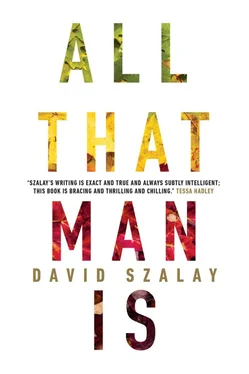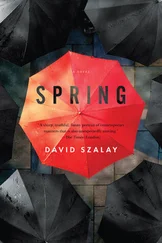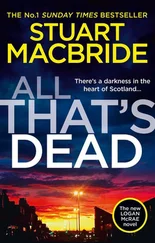He thinks of the faces of the people on the pavement, witnessing the scene, laughing, pointing to show him his mistake, smiling at him. Not unsympathetically, some of them. In a way that just made it worse. It was obvious from their expressions that what they were seeing was something pitiful — an old man, out of his depth, making a mess of things.
That was what their faces said they were seeing.
And it was a shock.
That wasn’t how he thought of himself at all.
Afterwards, when he had finally found somewhere to park, he walked the streets for a while, feeling absurdly shaken, and found himself, eventually, outside Sant’ Apollinare Nuovo.
It was hardly warmer inside than it was outside.
There were a few people there, not many, milling about, looking at the mosaics, those echoes of Byzantium. He himself had seen them many times — the long frontal lines of white-toga’d figures, white on gold. He has never been a Christian. Of course he was brought up in the vaguely or vestigially Christian setting of England in the 1940s and ’50s, but even in his earliest years he had not believed in God, in Jesus, or any of that. They had always been just words to him. Just stories, like other stories. That was not particularly unusual, he thought, for someone of his generation. He stood there, looking up at the impassive, pink-cheeked faces. In lines like a school photo. And then that extraordinary image, at the end, of the curtains opening, as if to show us something — only there’s nothing there, just a flat gold space, a surprising area of plain golden tiles. A pigeon had got in and was fluttering about up there.
He stayed for a few more minutes and then went out and looked at the outside of the basilica. The campanile, standing against the grey sky. He knew the history, sort of. Theoderic the Ostrogoth etc. Murdered his predecessor with his own hands — invited him for dinner apparently and personally murdered him. They were fighting over Italy. The Western Empire was falling apart.
Something about the whole episode depresses him. He is still weighed down, the next day, by the sense of his own uselessness that had taken hold of him as he was driving, as he was struggling with the Ravenna traffic — and then the fuck-up in the one-way street. It depresses him. Depresses him out of all proportion, you would think, to what actually happened, embarrassing as that was.
—
Later, and unexpectedly, Joanna phones.
She asks whether Claudia has been in.
‘Yes,’ he says, ‘she was here.’
‘You managed to get the heating going?’ Joanna asks.
This question irritates him — the suggestion that he might not have managed it. He lets a moment pass, his eyes finding the photos on the sideboard where the phone is: family photos, and photos of himself with John Major, with Tony Blair — the prime ministers he served. ‘Yes,’ he says.
‘So the house is warm enough?’
‘The house is fine.’
There is a pause. ‘Well, I just thought I’d call and see how you are,’ she says.
‘I’m fine.’
‘Okay. Now listen, Tony.’ And she starts to tell him how she has to go to New York for a few days, to head office — she is a seniorish manager in a pharmaceutical firm — for some annual appraisal.
Dusk is falling in Argenta. He sees it through the tall windows of the sitting room. Darkness settling on the flat land. She is off to New York. And he is here, in Argenta, with its tractor showroom, its marsh museum.
‘Well, have fun,’ he says.
‘I’ll be back on Friday.’
That doesn’t mean much to him. He isn’t sure what day it is today.
There is a pause, a longer one. ‘You are okay, Tony?’ she asks, sounding slightly embarrassed, as if the question were intrusively personal.
‘I told you. I’m absolutely fine.’
She says quickly, ‘Did Cordelia send you Simon’s poem?’
‘Yes, she did.’
‘And? What did you think?’
‘It wasn’t bad.’
Afterwards, he wishes he hadn’t been so offish with her. It was nice of her to phone. Something about the way she spoke to him though. It was like the way those people had looked at him in the one-way street yesterday as he struggled to reverse in a straight line. That was something he had once been able to do — reverse in a straight line. He looks at his watch.
He waits a little longer and then has some more wine. A very fine Barbaresco, a present from someone years ago that he had been saving for a special occasion. He opened it at lunchtime, impulsively, and drank half of it alone, in the middle of an ordinary weekday, with an indifferent omelette. What was the point of waiting, anyway?
He drinks some more now with some cheese and prosciutto, a few olives, assembled on a plate. A football match on the TV. Some Serie B match between teams he has never even heard of playing out a nil — nil draw on a December afternoon. The stadium is evidently half-empty. Still, it dispels the silence. It passes the time.
He wonders whether to phone Cordelia. In the end he doesn’t. He doesn’t want to disturb her. He is depressed — he wouldn’t be able to hide that from her, she would hear it in his voice — and he doesn’t want to make her feel down too. He doesn’t want her, in future, not to want him to phone. Which she won’t if he’s always whining at her, droning on about his problems, asking questions that obviously don’t interest him, leaving long despondent silences on the line.
He pours himself some more of the Barbaresco. Actually, it’s excellent. One of the finest reds produced in Italy. He is able to appreciate that; there seems to be a sort of hole, though, where his pleasure in it should be. It’s a waste, he thinks, to drink it in this state.
He looks at his watch.
It’s too early, surely, to turn in?
The house, now that the football is finished and he has turned off the TV, is oppressively silent.
He sits in the wing chair and tries to read. His thoughts keep wandering. He thinks of Alan. He has a half-brother, Alan. How old is Alan now? Eighty-five? Hardly able to walk. Hardly able to stand up — any sort of movement at all involves physical pain and mental anguish. Humiliation. He thinks of the last time he saw him. Alan’s hair looked soft and effeminate — and snowy white, obviously, like the large soft trainers he always wears now. He had tried to smile when he saw Tony. He hadn’t been able to stand up. He had just shivered in his chair, trying to smile, his jaw wagging as he struggled to speak, to say something. ‘How are you, Tony?’ he had finally managed, in a weird, slurred voice. His skin looked as though it was dead already, as if the outer layers of him were dead already. His faded eyes peered out with fear, and a sort of hostility, from that dead face.
He is still sitting there with the book in his hands — Christopher Clark’s The Sleepwalkers: How Europe Went to War in 1914 .
You couldn’t really talk to Alan any more, that was one of the saddest things.
He was fading away.
Fading away.
Do we all end up just fading away?
—
There are moments of serious fear, during the night. At one point, he is sure that something is going wrong with his heart. Then later, a nightmare of some sort.
A huge stick-insect-like thing with lazy eyes.
For a long time it is motionless, until he almost stops fearing it.
Then it starts to move.
Touches him.
He wakes with a yelp of horror, and takes hours to fall asleep again, once the fluttery panic of the nightmare has swum away, thinking about Alan, and about how little time he himself has left. He lies there in the dark, somehow horrified by his situation, as if it is something he has only just found out about. As if someone has just told him, for the first time, that he is seventy-three years old.
Читать дальше












